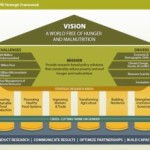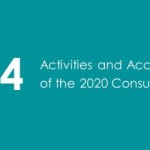 IFPRI has released a new food policy report on “Resilience Programming Among Nongovernmental Organizations: Lessons for Policymakers.” The report, authored by Tim Frankenberger, Mark Constas, Suzanne Nelson, and Laurie Starr, makes the case that building resilience depends on integrated programming that crosses sectors and a long-term commitment to improving different types of capacity. The report examines a wide array of resilience-focused initiatives by nongovernmental organizations (NGOs) and draws implications for policymakers and other stakeholders looking to strengthen resilience. Steps that can be taken to improve resilience programming include: using comprehensive assessments, holistic problem analysis, and theory of change to inform resilience programming; collaborating strategically with other development actors to address transformative capacity; investing in the capacity to measure resilience; and committing to a region for an extended period of time and developing regional strategies to align resources and staffing. The report is based on Frankenberger and colleagues’ paper prepared for the 2020 conference in Addis Ababa.
IFPRI has released a new food policy report on “Resilience Programming Among Nongovernmental Organizations: Lessons for Policymakers.” The report, authored by Tim Frankenberger, Mark Constas, Suzanne Nelson, and Laurie Starr, makes the case that building resilience depends on integrated programming that crosses sectors and a long-term commitment to improving different types of capacity. The report examines a wide array of resilience-focused initiatives by nongovernmental organizations (NGOs) and draws implications for policymakers and other stakeholders looking to strengthen resilience. Steps that can be taken to improve resilience programming include: using comprehensive assessments, holistic problem analysis, and theory of change to inform resilience programming; collaborating strategically with other development actors to address transformative capacity; investing in the capacity to measure resilience; and committing to a region for an extended period of time and developing regional strategies to align resources and staffing. The report is based on Frankenberger and colleagues’ paper prepared for the 2020 conference in Addis Ababa.

© 2026 COPYRIGHT & FAIR USE | PRIVACY & COOKIE POLICY
International Food Policy Research Institute
e-mail: IFPRI-2020Resilience@cgiar.org
International Food Policy Research Institute
e-mail: IFPRI-2020Resilience@cgiar.org




